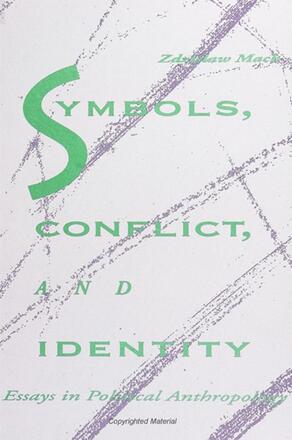
Symbols, Conflict, and Identity
Essays in Political Anthropology
Alternative formats available from:
Description
This book investigates cultural and social identity in contemporary complex societies, focusing especially on Eastern Europe. Mach explains the role of symbols and symbolic forms in he relations between groups and the protection and development of their identities, especially ethnic identity. He places his study within the context of social order and the structure of power, using case studies which deal especially with the significance of politics, state rituals and national identity (Great Britain, Israel, Russia, Poland); in the conflict and displacement of migrating groups (Polish and German); and in regional questions of identity and inter-ethnic relations (Poland, United States, Great Britain).
Mach presents a clear conceptual framework for analyzing the symbolic construction of identity. He views cultural identity as a dynamic, creative process which clarifies issues that are particularly significant in contemporary society, such as nationalism, new ethnicity, minority culture, and the cultural dimension of political conflicts.
Zdzislaw Mach is Associate Professor in the Department of Social Anthropology, Institute of Sociology, at Jagiellonian University of Krakoaw.
Reviews
"It is an excellent effort at state-level ethnography, at an anthropology of personhood, and at the anthropology of socialism. The author introduces American readers to the works and ideas of Central European colleagues, bridging the gap between Anglophone anthropology and that of Poles, Czechs, and Soviets. " -- Robert Rotenberg, DePaul University